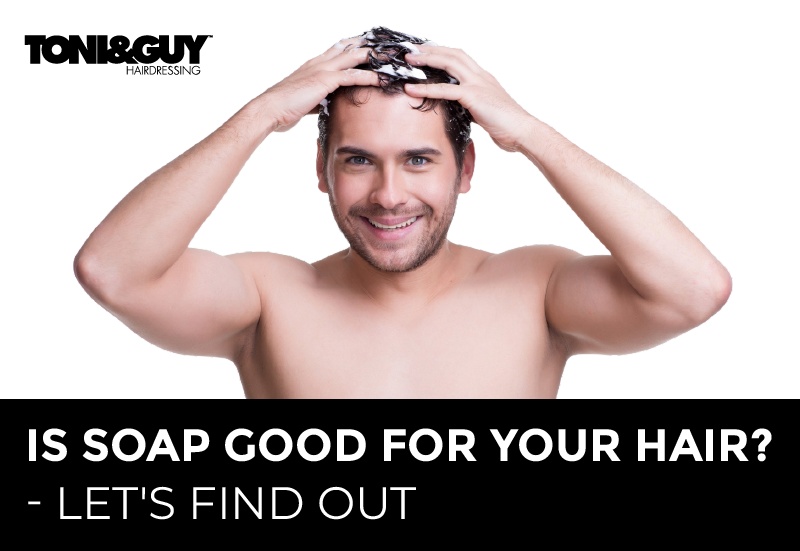
Introduction
The debate over the best hair care practices is ongoing, with a growing interest in natural and sustainable alternatives. One such alternative that has sparked considerable discussion is the use of soap, specifically bar soap, as a replacement for traditional liquid shampoos.
This blog aims to delve deeper into the subject, incorporating scientific research, expert opinions, and consumer surveys to provide a comprehensive view.
In recent years, there has been a shift towards more natural and eco-friendly beauty and personal care products. Among these, the use of traditional soap bars for hair care has emerged as a practice praised for its simplicity and minimalism.
However, understanding the scientific implications of soap’s interaction with hair and scalp is essential to evaluate its efficacy and safety as a shampoo alternative.

The Science of Soap and Hair
Soap is created through saponification, where fats and alkalis react to form soap and glycerin. This process results in a product that is effective at removing dirt and oils but has a significantly higher pH than the natural pH of the scalp and hair.
Pros of Using Soap on Hair
Natural Ingredients
Many consumers are drawn to soap for its use of natural ingredients. A survey by the Environmental Working Group (EWG) found that consumers are increasingly concerned about synthetic additives in beauty products, with over 60% preferring products made from natural substances.
Environmental Benefits
The zero-waste movement has heralded bar soap as a way to reduce plastic consumption. According to a report by the Plastic Pollution Coalition, switching to bar soap can significantly cut down on plastic waste from personal care products.
Gentle Cleansing
A study published in the Journal of Dermatological Treatment highlighted that certain natural soaps could cleanse the hair without removing essential oils as aggressively as some shampoos, which may benefit individuals with dry or sensitive scalps.
Cons of Using Soap on Hair
Alkaline Nature
The alkalinity of soap can disrupt the scalp’s natural pH balance, leading to issues like frizziness and cuticle damage. Research in the International Journal of Trichology points out that an alkaline environment can cause hair fibre swelling, leading to increased friction and breakage.
Complicated Water Reaction
Soaps can react with minerals in hard water, forming a scum that leaves hair looking dull and feeling stiff. The American Water Works Association has reported that hard water affects 85% of the water in the United States, which can exacerbate this issue for many people.
Moisture Stripping
Despite the gentle nature of some soaps, they can still strip hair of moisture. A consumer survey by a leading hair care brand found that over 70% of participants experienced increased dryness and brittleness when using soap as a shampoo.
Expert Opinions and Recommendations
Dermatologists and trichologists often recommend using products specifically formulated for hair care, as these are designed to respect the scalp’s pH balance and hair’s structural integrity.
For those who choose to use soap, following up with an acidic rinse, such as diluted apple cider vinegar, can help neutralise the pH and minimise damage.
Alternatives and Recommendations
For those exploring alternatives to traditional shampoos and soap, pH-balanced shampoos emerge as a superior choice. These shampoos are specifically formulated to match the natural pH of your scalp and hair, ensuring minimal disruption to your hair’s health and appearance.
They cleanse effectively without stripping hair of its natural oils, thus maintaining moisture and reducing frizz.
For DIY enthusiasts, creating an acid rinse can help balance hair pH post-soap wash. A popular recipe involves mixing one part apple cider vinegar with three parts water. This rinse helps close the hair cuticles that soap opens due to its alkalinity, leaving your hair smoother and shinier.
ALSO CHECK – BEST HAIR SMOOTHENING IN CHENNAI
Transitioning from shampoo to soap requires patience. Initially, your hair might feel waxy or heavy as it adjusts to the change. During this period, consider using less soap and rinsing thoroughly.
Integrate the acid rinse into your routine to counteract the soap’s alkalinity. Expect a transition phase of a few weeks, after which your hair’s texture and appearance should start to improve as it adapts to the new regimen.
Toni&Guy Salons

Toni&Guy in Chennai represents the global prestige and innovation of the Toni&Guy brand, tailored to the unique style sensibilities of the local clientele.
Situated in one of India’s most vibrant cities, Toni&Guy Chennai offers a wide range of high-quality hairdressing services, including stylish cuts, advanced colouring techniques, luxurious hair treatments, and personalised styling.
The salon is staffed by professionally trained stylists and colourists who bring international trends to the local scene, ensuring each client receives a bespoke service that reflects their individuality.
Toni&Guy Chennai also emphasises the use of premium hair care products, ensuring clients enjoy a world-class hairdressing experience that combines global trends with local flavours.
Conclusion
The decision to use soap on your hair is personal and should be informed by an understanding of your hair type, local water hardness, and the specific soap’s ingredients.
While soap can offer environmental and natural benefits, it’s crucial to be aware of its potential drawbacks and take necessary precautions to maintain healthy hair and scalp.
As the hair care industry continues to evolve, perhaps more refined soap formulations will emerge, offering a viable alternative for those seeking natural hair care solutions without compromising on hair health.
FAQs
- Is it safe to use any bar soap on my hair?
Not all bar soaps are suitable for hair use; some can be too harsh. It’s best to choose soaps formulated explicitly for hair or mild, natural soaps with moisturising ingredients. These are gentler on your scalp and hair, minimising the risk of dryness and irritation.
- How does the pH of soap affect my hair and scalp?
The alkaline pH of soap can disrupt the natural acidic environment of your scalp and hair, potentially leading to dryness, frizziness, and damage. An acidic rinse after washing helps restore the natural pH balance, keeping hair smooth and healthy.
- Can using soap as shampoo help with dandruff or scalp issues?
Soap might exacerbate scalp issues for some due to its alkalinity, which can disturb the scalp’s natural balance. If you have dandruff or sensitive scalp conditions, consult with a dermatologist for personalised advice before switching to soap.
- What’s the best way to transition from shampoo to soap without damaging my hair?
Start by gradually introducing soap into your routine, allowing your hair and scalp time to adjust. Use a conditioning acid rinse to help balance the pH, and monitor your hair’s response, changing the frequency of use based on its condition.
- How often should I use an acidic rinse after washing my hair with soap?
An acidic rinse should be used every time you wash your hair with soap to help neutralise its alkaline effect, restore scalp pH, and smooth the hair cuticles for a shinier appearance.
- Will soap work on colour-treated or processed hair?
Soap can strip colour and moisture from treated hair, leading to fading and dryness. Consider pH-balanced shampoos or consult a professional for tailored advice if you have colour-treated or chemically processed hair.
- How do I deal with the waxy buildup from using soap on my hair?
Waxy buildup can be minimised by thoroughly rinsing your hair with warm water and using a diluted apple cider vinegar rinse. Adjusting the soap type and water temperature can also help reduce residue.


